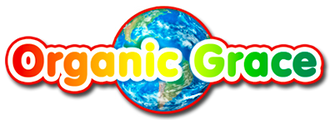31st May 2023
PVC's in Toys
Green Guide 45 | October 7, 1997
"Toys Made With Hormone-Disrupting Phthalates"
by Aisha Ikramuddin

Parents justifiably worry that their young children will choke on small objects. In July 1997, this concern set off alarm bells over a new candy, called Nestlé Magic -- a chocolate-covered plastic egg holding small plastic representations of Disney film characters. But Greenpeace International raises another issue about the safety of certain plastics used in toys: vinyl (polyvinyl chloride, or PVC) plastic toys and teethers may contain significant amounts of phthalate esters, which may readily leach into the mouths of children. Greenpeace found that 71 soft plastic toys and teethers for children under age three, sold in 17 countries, contain from 10 to 40 percent phthalates by weight, according to their report "Determination of the Composition and Quantity of Phthalate Ester Additives in PVC Children's Toys," released in September 1997.
Phthalates (pronounced tha-lates) are plasticizers -- softening agents used to make PVC flexible so it can be used in toys, flooring and other products. Some phthalates have been linked to cancer, kidney and liver damage, and interference with hormonal activity (see Green Guide #42). Because phthalates are not tightly bound to the plastic matrix of PVC plastic, they can migrate easily from the surface to other surfaces and the air. David Santillo, Ph. D., a Greenpeace scientist from Exeter University who analyzed the toys, says that the smell from a new PVC toy comes from "the phthalates volatilizing from it." Greenpeace found residues of phthalates on eight non-PVC plastic toys tested, and believe the residues to have come from PVC packaging.
The International Council of Toy Industries (ICTI) claims that "PVC and phthalate esters ... in PVC toys are not a danger to children." But, this year, government agencies in Denmark and the Netherlands discovered that phthalates leaching from PVC teething rings exceeded allowable limits set by the European Union by up to 40 times. A number of Swedish, Dutch and Danish supermarkets, toy stores, and manufacturers, including the Dutch Toys 'R' Us and Danish LEGO, have taken steps to eliminate PVC toys for children.
In the U.S., concerned parents can ask toy retailers like Toys 'R' Us to stop carrying PVC toys, and toy manufacturers, such as Hasbro/Playskool (800/242-7276), Mattel (800/524-8697) and Fisher-Price (800/432-5437), to stop making them

